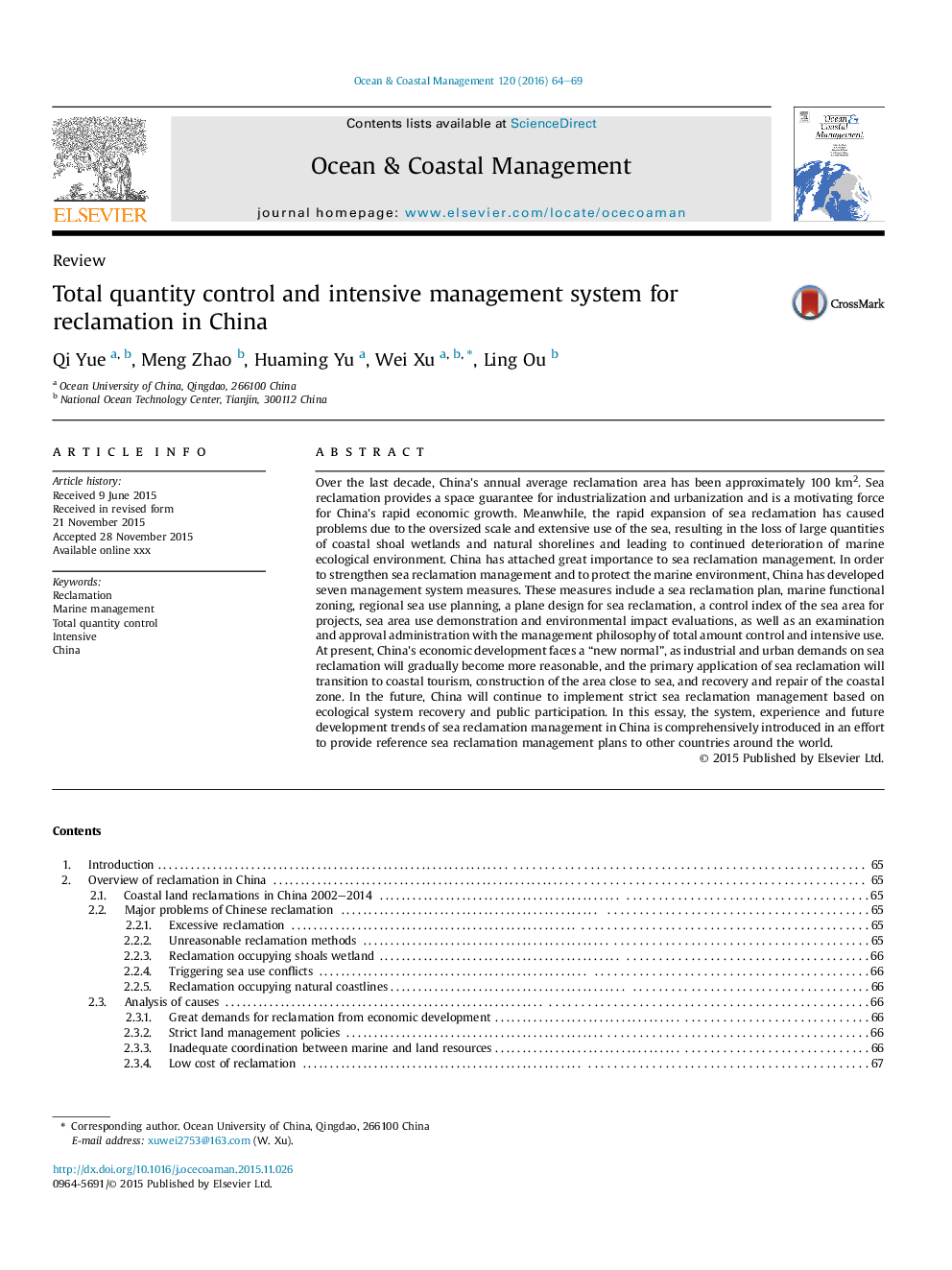| Article ID | Journal | Published Year | Pages | File Type |
|---|---|---|---|---|
| 8061217 | Ocean & Coastal Management | 2016 | 6 Pages |
Abstract
Over the last decade, China's annual average reclamation area has been approximately 100Â km2. Sea reclamation provides a space guarantee for industrialization and urbanization and is a motivating force for China's rapid economic growth. Meanwhile, the rapid expansion of sea reclamation has caused problems due to the oversized scale and extensive use of the sea, resulting in the loss of large quantities of coastal shoal wetlands and natural shorelines and leading to continued deterioration of marine ecological environment. China has attached great importance to sea reclamation management. In order to strengthen sea reclamation management and to protect the marine environment, China has developed seven management system measures. These measures include a sea reclamation plan, marine functional zoning, regional sea use planning, a plane design for sea reclamation, a control index of the sea area for projects, sea area use demonstration and environmental impact evaluations, as well as an examination and approval administration with the management philosophy of total amount control and intensive use. At present, China's economic development faces a “new normal”, as industrial and urban demands on sea reclamation will gradually become more reasonable, and the primary application of sea reclamation will transition to coastal tourism, construction of the area close to sea, and recovery and repair of the coastal zone. In the future, China will continue to implement strict sea reclamation management based on ecological system recovery and public participation. In this essay, the system, experience and future development trends of sea reclamation management in China is comprehensively introduced in an effort to provide reference sea reclamation management plans to other countries around the world.
Related Topics
Physical Sciences and Engineering
Earth and Planetary Sciences
Oceanography
Authors
Qi Yue, Meng Zhao, Huaming Yu, Wei Xu, Ling Ou,
